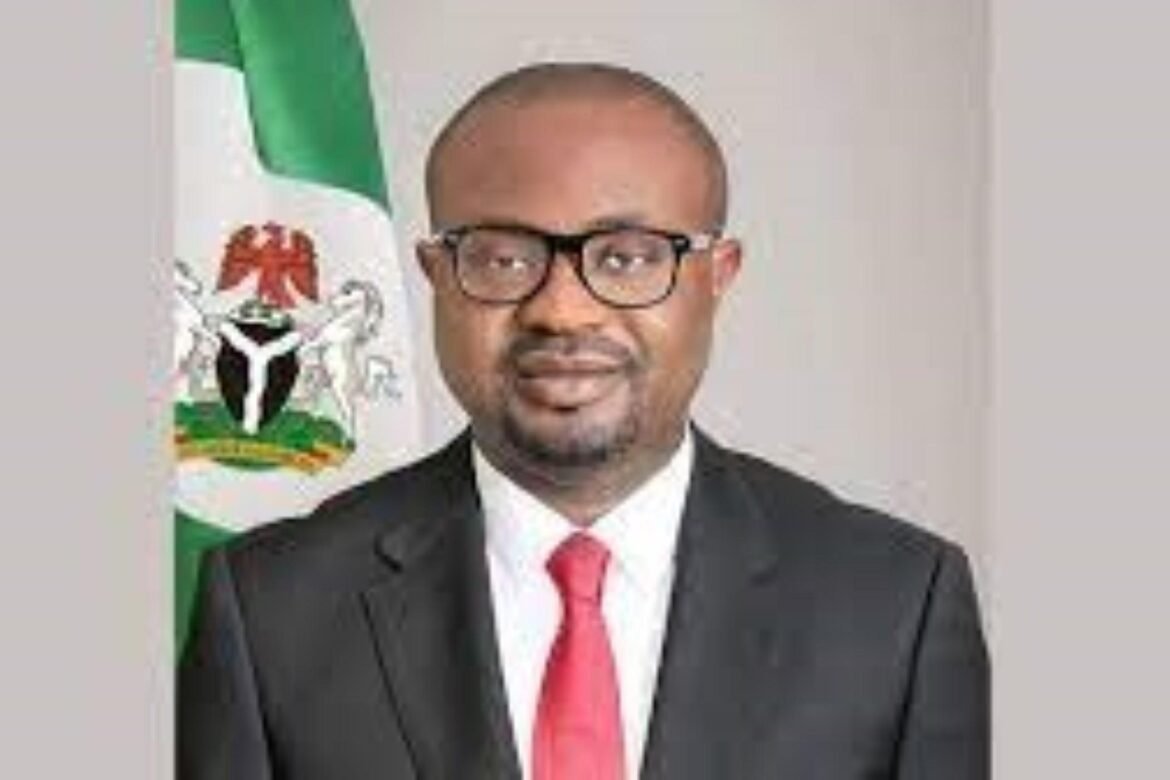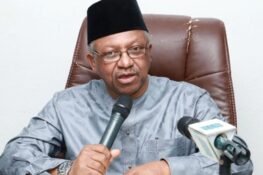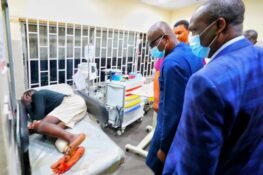Carrying a Nigerian international passport already has a consequence as one of the least powerful in the world.
When the passport that is the 96th ranked becomes hard to obtain, it is a paradox.
But there is no contradiction, the very reason the passport has little international value is that the entity that issues it is dysfunctional.
Nigerians have a bad deal from their citizenship by being mistreated, under-served and regularly taken for granted.
Ours is one of the most expensive yet unrewarding citizenships among nations, with the consequence of being a Nigerian following you wherever you run – otherwise described as Nigeria happening to you.
It is a dire consequence for which there is no escaping, except you severe all connections.
Those who manage to leave the country’s shores are not completely shielded from the punishment of inept public service.
The chaotic passport issuance system is one of such consequences, especially for families already out of the country who must travel with the green paper.
For two years, I have been following stories of untold hardship unleashed through the poorly-managed scarcity of travel passports initiated by the COVID-19 pandemic, the global supply chain problems and shrinking foreign exchange supplies.
But what really exacerbated the problem for Nigeria is a massively corrupt structure in Abuja.
And hardest hit are Nigerians in the diaspora who are wholly at the mercy of a broken system.
Many thanks to the Minister of Interior, Dr. Olubunmi Tunji-Ojo, who has been trying to get the Nigeria Immigration Service (NIS) to clear over 200,000 backlog of passport applications in two weeks.
But while the minister claims his revolution has worked within three weeks, it is working either in Nigeria or merely in the mass media because Nigerians are still not collecting passports so quickly everywhere.
The problem with the travel certificate processing was not just that it is too expensive or could not be issued same day, it was that its issuance was managed by just one officer who had the attitude of a weasel
Not in the United States, UK or Canada, as far as I know!
The Tinubu administration’s two-week timeline for the processing of international passports is fallacious.
The era of waiting is not over and I challenge the minister about his false claims.
I applied for a passport online on August 24, completed the verification process at the Nigerian Consulate in New York on September 17, and have a three-month wait time for delivery.
I do not have a valid passport at the moment.
Although I had set out to renew an expired passport, instead of being issued one, I was asked to apply for an emergency travel certificate by the embassy, which admitted it would be unable to provide a passport in less than three months.
I had read many accounts of harrowing experiences by Nigerians in various countries that I thought I was prepared for the worst.
What was inconceivable was that even in an emergency, Nigerians could not be issued a passport.
Many countries, including the US and Canada, faced shortages in supplies, but their systems always made a provision for emergencies.
To obtain a Nigerian passport, the process starts online with an application and payment at the embassy’s provider website.
Once you pay, an application number is generated, which you then use to schedule an appointment to visit the embassy or consulate.
That appointment is usually one month or more away. There is no option to make it faster.
In the past, a passport was issued during the appointment – and that’s where I got it all wrong, because this time the probability of walking away with a passport was a firm zero.
Printing machines have been removed from New York and Atlanta, according to a consular employee processing passports who spoke on the condition of anonymity.
The employee revealed that all that the New York consulate, which serves the largest concentration of Nigerians in the US, can do was collect biometric and related data, then ship them over to the embassy in Washington DC. where the security printing machines had been relocated.
The first evidence of deplorable service was that a citizen would not know what to bring for passport processing until the appointment at the consulate.
Once checked in, you are taken to a room on the first floor, where a long list of requirements is displayed.
God help you if you flew in from Boston or Buffalo to find that you left some data at home.
I met some Nigerians who not only flew in from other states but had stayed over at expensive New York hotels in order to appear on time for their appointments.
If you were lucky to have everything required ready, you are then routed to a shop on a street adjacent to the consulate to make photocopies, buy a pre-paid postal envelope for the delivery of the passport to your home and fulfil other complementary requirements.
The next stage is document review, during which the embassy shakes you down for more dollars, by requiring a payment of $30 “administrative fees” for the passport.
The unlisted charge is non-negotiable. You either pay or go home.
If you make it through to this stage, you have done well but you will not collect a passport.
You are just made to join a queue to complete the biometric data capture.
The queue is usually long and rowdy.
It is the time to see the Nigerian culture on display.
Citizens shout on each other as they seek to beat the queue.
There was a fight between an elderly man and an impolite young lady.
After they got tired of shouting on each other with contributions from a support cast of passport-seekers, they stopped.
After some hours, it was my turn.
This was the moment the unpleasant news was delivered that I would not be getting a passport.
The officer, who shared my love for smooth jazz, said, “no matter how much I love to help you, you are not getting a passport for a few months.”
“You can see how frustrated Nigerians are. You saw that woman making a noise minutes ago because she had been here for hours. It happens every day. I have to keep my sanity by listening to jazz.”
What was I to do then, since I needed to travel urgently? There is an expensive way for Nigerians to travel home, in the form of an emergency travel certificate.
It is not a new document type; it was just rarely used.
Surprisingly, this new cash cow is now as expensive as a passport.
The passport is $142, but the travel certificate costs $150 dollars, in addition to document fees.
The certificate is only good for one use and it takes at least two weeks to process.
It is just a stamped one-page letter with the traveler’s photo on it – sold by Shylock.
The problem with the travel certificate processing was not just that it is too expensive or could not be issued same day, it was that its issuance was managed by just one officer who had the attitude of a weasel.
The woman in charge needed serious grooming in customer service.
She left the office without any notice while everybody waited. About 40 minutes later, she appeared and gave out a printout.
Perusing the document, I had a question about whether I could get the certificate same day.
Her reply: “You Nigerians do not read.”
I made a point that the question wasn’t answered on the document.
She was adamant that I was just another Nigerian moron in New York.
Sensing that I could save another visit by playing along, I didn’t argue but dashed to the streets of Manhattan to process the requested information.
One hour later, I had everything compiled.
Upon returning to her office sweating profusely, I drew the chair to sit. “I don’t allow people to sit in my office,” she warned.
At this point, I was getting annoyed.
I replied: “Why don’t you remove the damn chair then, or put a warning on it?”
“You are supposed to ask if you can sit. The chair is for some people,” she replied.
“How do I know the subject of your discrimination?” I queried her, bemused.
On a normal day, I would have let her know the office was paid for by taxpayers, but I just wanted to get things done and not take another day off at work.
The important question was if she could issue the certificate same day, to which I got a flat refusal.
“I told you I would determine that after I saw your data.”
I said: “But my data is complete now and why did you have me running all over the city if I couldn’t get it today?”
“You can’t get it sooner than two weeks, you have to come back and I have to give you an appointment to collect it and you will have just 30 minutes to pick it up on the day,” she replied.
Deflated, I dropped all the papers and scheduled an appointment to return to the office. I neither got a passport nor a travel certificate.
Apart from wasting precious work days, the total cost in my quest for a renewed passport was around $800, including official charges, the travel certificate, transportation and other fees
While some consular staff are great individuals, they lacked motivation and inspiration.
Some others are just terrible at what they do. How they keep the job is amazing.
Consular officials are challenged even more by frustrated Nigerians who are appalled by poor service delivery, inadequate information about the process and failure to be issued passports within reasonable timeframes.
One official, who disclosed that worsening services were due to lack of trust for the consulate offices, revealed that there are now just two passport-printing machines in all of the US.
All passport documents are sent to Washington DC for printing.
Apart from wasting precious work days, the total cost in my quest for a renewed passport was around $800, including official charges, the travel certificate, transportation and other fees.
It could have been a lot more if I needed hotel accommodation in New York.
I could have applied for a Nigerian visa, which I have always considered an odd way of travelling to your own country.
Terrible as my experience has been, it is far better than many others that I have read or watched.
The next time, I would go to the consulate with relaxing blues music.








